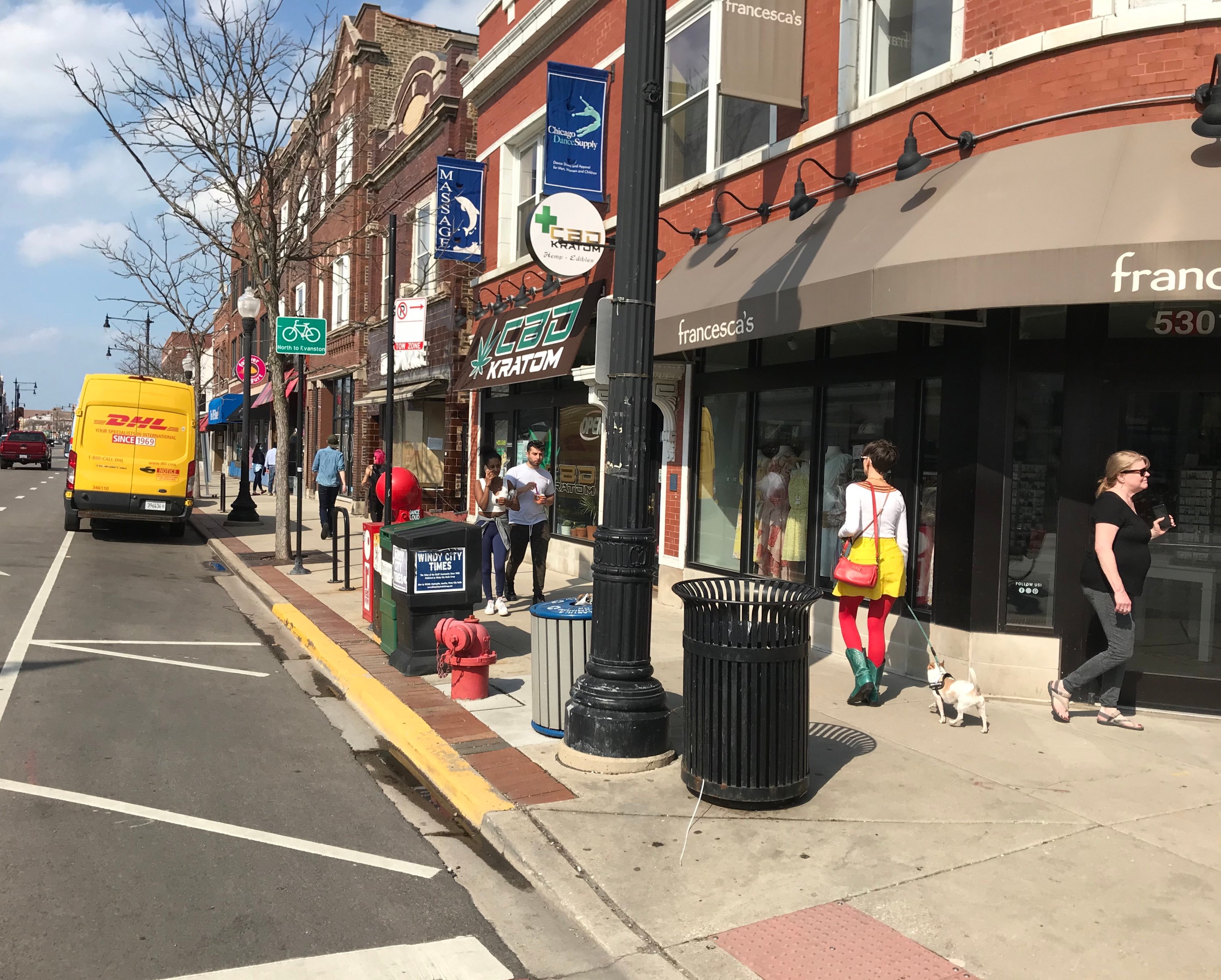Driving is way down during the pandemic, but pedestrian activity and biking has surged. Social distancing rules call for staying at least six feet away from non-household members, but I've been experiencing and hearing reports that that's difficult to do on sidewalks along retail strips in Chicago's denser wards. As a result, lots of people are walking and jogging in the street, which puts them at risk of being struck by motorists, many of whom are taking advantage of the lack of traffic congestion to drive dangerously fast.

Yesterday I proposed fencing off a parking lane on one side of the street on Chicago's busier pedestrian corridors during Stay at Home to make room for safe, socially-distanced walking and running. Some of the space could also be potentially used for protected bike lanes. Parking demand is so light nowadays that this would cause little inconvenience for drivers.
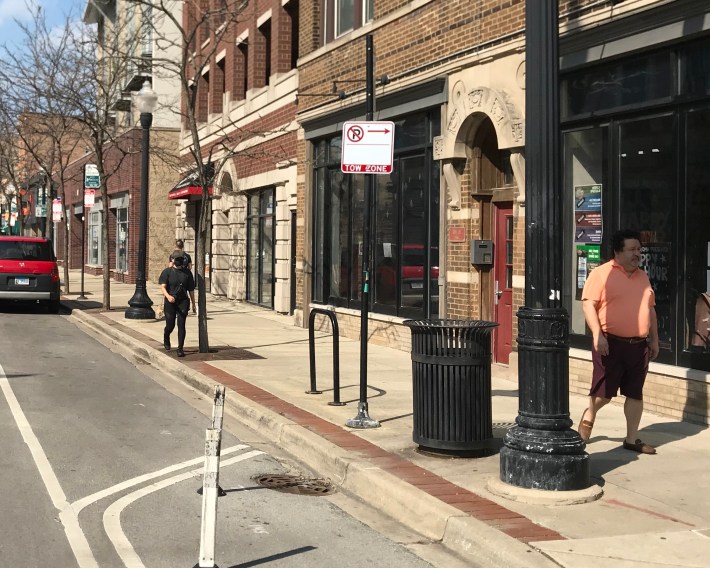
That's not a very radical idea. Cities all over North America, from New York to Philly to Denver to Portland, have been completely pedestrianizing streets to make room for socially-distanced transportation and recreation. And parking lanes on Clark Street in Wrigleyville are regularly fenced off to create more pedestrian space during the neighborhood's multiple, rowdy bar crawls.
Some politicians, like 46th Ward alderman James Cappleman, whose district includes parts of the dense Uptown and Lincoln Park neighborhoods, don't seem to think crowded sidewalks, and pedestrians being forced into the street is a thing in their wards. Here's an exchange we had after the parking lane post was published.
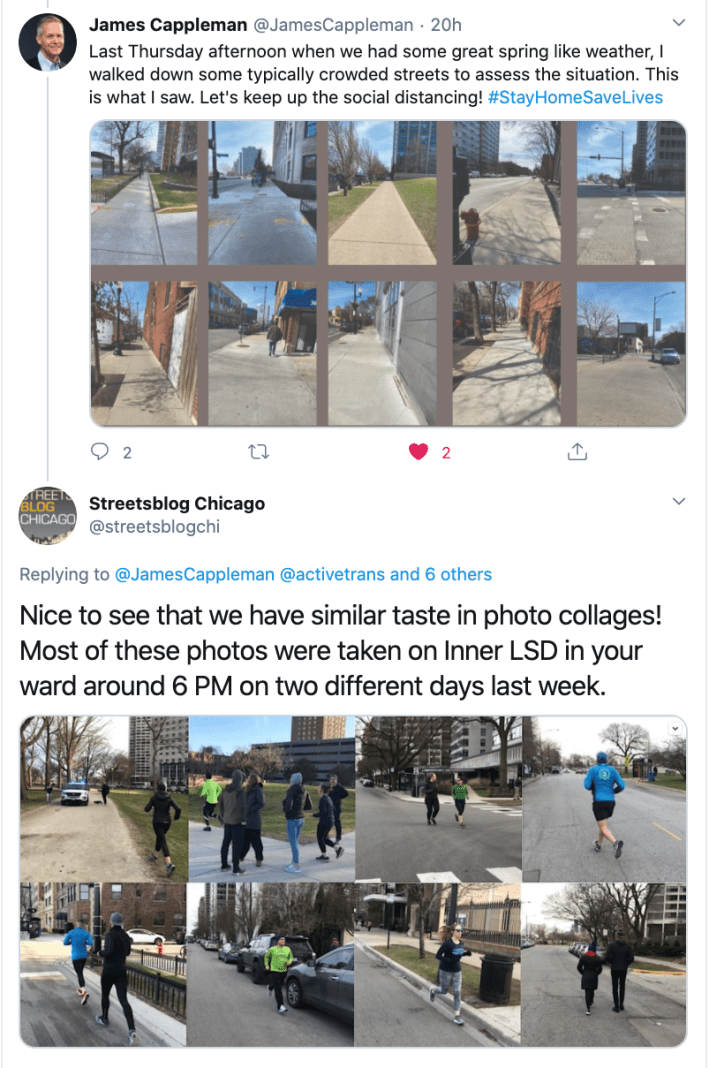
So I stopped by the Clark Street business district in Andersonville, just outside of Cappleman's ward, on this lovely this afternoon to check out the scene. As I suspected, crowding was an issue on the narrow Clark sidewalks, especially in locations where people were waiting at bus stops.
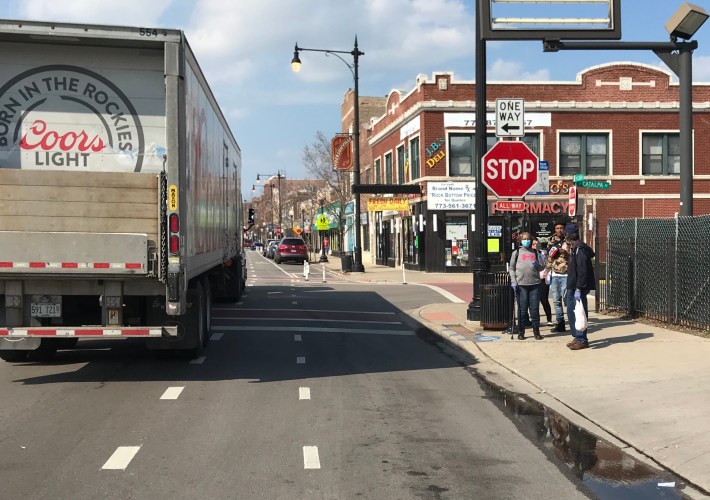
On the other hand, the parking lanes were largely empty, so this retail strip would be a great candidate for creating temporary pedestrian space during the pandemic. Yes, Chicago's abominable parking meter deal, with forces the city to pay the concessionaire any time meters are taken out of service, could be a snag.
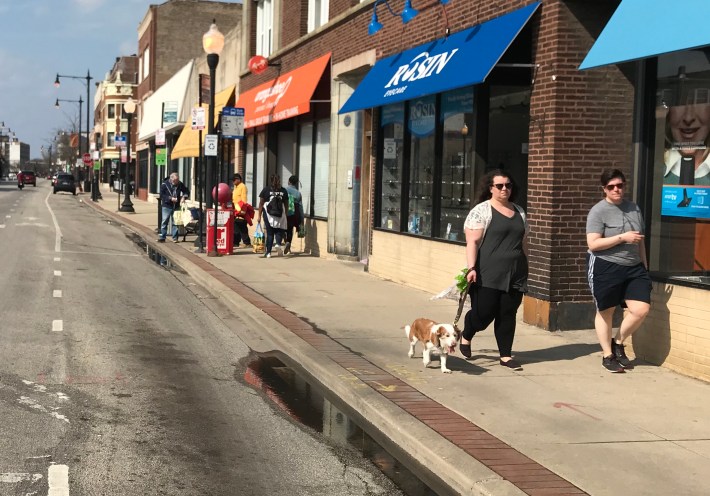
Perhaps the concessionaire could be persuaded to do the right thing and waive the fees during this crisis, since they're not making much money off meter right now anyway. Barring that, Chicago:Star Line brought up the idea of painting diagonal parking stalls on one side of the street so there would be no net loss of spaces.
The Andersonville strip is mostly governed by aldermen Andres Vasquez (40th), Matt Martin (47th), and Harry Osterman (48th), who are all reasonably progressive on transportation. And the Andersonville Chamber of Commerce has long been ahead of the curve on public space matters, such as getting on-street "parklet" mini parks installed. As such this would be an ideal location to test this idea. Let's try it out.
Here are some tips on preventing the spread of COVID-19, and advice for Chicagoans on what to do if you think you may have been exposed to the virus.
